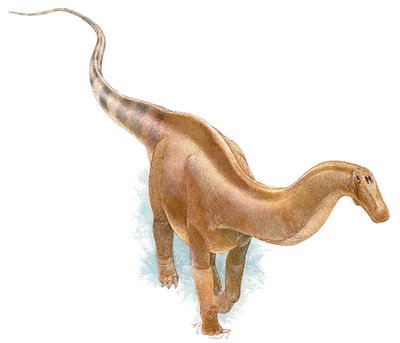
1. Humans spur worst extinctions since dinosaurs: UN
2. Life's diversity 'being depleted'
I think there's some kind of paradox involved with ethics that extend outside the domain of the humanistic in a way that is similar to the argument that claims all people are selfish (i.e. the altruistic care for others because of the gratification that it gives them to be altruistic). Similarly, most people could be seen as caring about nature because of its effects on us a species, and when we go beyond this and seek out naturalism we are reminded that we are not outside of ecology, but that we would, in a natural setting, have our own proper place in a proper ecological niche. In this way we are greeted with an almost dialectical ambiguity. To do what is best ecologically is to be within the realm of naturalism, and to do what is in the realm of naturalism implies that we recognize our role as a species, and in doing so accept its inclinations and prejudices. Animals look out for their best interests collectively, but their family and species have the immediate priority. Daniel Quinn would say that the difference is that in the state of nature animals don't eliminate their competition in order to further their familial or special (?- specie-al) prosperity and in turn allow their numbers to grow beyond what the natural carrying capacity would allow, but at the same time I don't think that a single caveat would eliminate my uncertainty on the matter.
A non-anthropocentric take on ethics by definition would place the immanent priority on the collective interaction between species, which to many would seem ludicrous (e.g. "The elimination of insects through pesticides is unethical because it kills mindless bugs when it allows existing humans to meet their food supply demands and prevent starvation?"). It follows that because the push for ecology is either in the interest of our personal well-being (viz. our impact on ecosystems that in turn affect us) or in the pursuit of naturalism (at which point we must resume our role that immanently places priority on the benefaction of our species), a sensical non-anthropocentric ethical theory would have to be (1) pretty creative, and (2) perhaps even not truly "non-anthropocentric", because we would have to be outside of our subject to appropriately make such determinations.
At this point I'm not quite sure what logically follows. Personally, I would like to embrace some degree of intrinsic value in other species and ecological systems (viz. deep ecology), while maintaining that humans can remain at least as prosperous (in a human utilitarian sense) as we are now in doing so, which seems to be apodeictically false. To reject the former qualifies me in the anthropocentric, to reject the latter places me into the direction of something that is popularly deontologically immoral (not accepting human life as the greatest earthly good). Maybe I could turn to an axiological judgment centering around sustainability which places its ethical qualifications in the long-term humanistically and ecologically, as well as ecologically in the short term. It doesn't quite resolve the paradox as much as sidestep it and go in a different direction.
5/1 update:
This doesn't make sense.

No comments:
Post a Comment